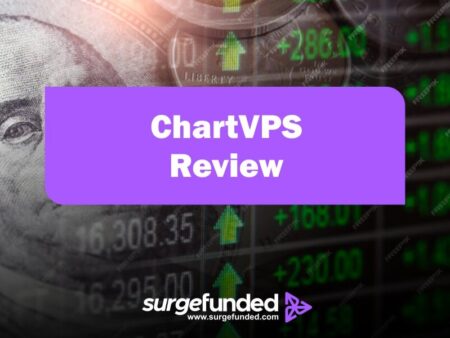Futures trading has become a well-liked means for investors to control risk, make predictions about market trends and maybe make significant profits in the fast-paced world of finance. However, the idea of futures can be confusing for people who are unfamiliar with trading. To help you comprehend this fascinating and complicated market, we will explore the principles of futures trading in this in-depth post, along with its advantages, risks, and commonly asked questions.
What Are Futures Contracts?
Futures contracts, which are legally binding agreements to buy or sell an asset at a fixed price on a specific future date, are the fundamental component of futures trading. These contracts are exchanged on regulated markets like the Chicago Mercantile Exchange (CME) or the Intercontinental Exchange (ICE), and they are standardized with regard to quantity, quality, delivery time, and location.
A variety of underlying assets are available for futures contracts, such as:
- Commodities which includes energy (such as crude oil, natural gas), metals (such as gold, silver, and copper), and agricultural products (such as wheat, corn, and soybeans).
- Major currencies include the British pound, euro, Japanese yen, and US dollar.
- Financial instruments include interest rates, stock indexes (such as the S&P 500 and Nasdaq 100), and U.S. Treasury bonds.
How Are Futures Trading Deals Executed?
Depending on your assessment of the market, futures trading entails taking a position in a futures contract, either long (buying) or short (selling). Purchasing the contract would put you in a long position if you think the value of the underlying asset will increase. On the other hand, you would take a short position by selling the contract if you believe the price will drop.
What are the main components of trading futures?
- Margin: Because futures trading uses leverage, you just need to deposit a small portion of the contract’s value, known as the initial margin. As a result, you can manage a sizable position with a comparatively small investment.
- Mark-to-Market: Futures contracts are settled every day, and your account is paid or debited with profits and losses that are determined by the daily fluctuations in price. The mark-to-market procedure, as it is called, keeps the market open and transparent.
- Settlement and Expiration: Futures contracts have a predetermined date of expiration, after which they need to be settled. payment can take place financially (cash payment based on the ultimate settlement price) or physically (delivery of the underlying asset).
Advantages of Trading Futures
For investors, this aspect of trading provides a number of benefits:
- Risk management: To guard against unfavourable price changes in the underlying asset, futures contracts can be utilized as a hedging strategy. Those who are exposed to the asset, such as producers, customers, or investors, will find this very helpful.
- Leverage: With comparatively little capital, investors can hold a sizable stake in futures trading by utilizing leverage. Although there is a chance for greater earnings, there is also a greater risk involved.
- Diversification: Exposure to a variety of asset classes can be obtained through futures contracts, which can aid in portfolio diversification and lower total risk.
- Liquidity: Futures markets have a lot of players and a lot of transaction volume, making them very liquid. It is now simpler to enter and exit positions fast.
Risk(s) Involved In Trading Futures
Although the above has potential advantages, there are also big hazards involved:
- Leverage Risk: When trading futures, using leverage can increase both gains and losses. You can lose more than your initial investment if the market moves against your position.
- Volatility Risk: Prices in futures markets are subject to large swings in response to news, economic data, and other factors. Significant and unexpected losses may result from this.
- Liquidity Risk: Even though futures markets are usually liquid, there may be instances when they become less so, making it challenging to buy or exit positions at the prices that you want.
- Counterparty Risk: When you sign a futures contract, you run the risk of the other party, or the counterparty, not fulfilling their end of the bargain.
Summarily,
Investors have a special and fascinating opportunity to engage in the international financial markets through futures trading. Through a thorough comprehension of futures contract basics, trading advantages and hazards and appropriate risk management techniques, investors can potentially diversify their portfolios and yield considerable returns. To successfully negotiate the intricacies of this volatile market, futures trading requires care, knowledge and a well-defined trading strategy.
Frequently Asked Questions
How Can I Begin Trading Futures Contracts?
- You must deposit the necessary margin into an account that you open with a futures broker in order to begin trading futures. In addition, you’ll need to familiarize yourself with the broker’s trading interface, formulate a trading strategy, and educate yourself on the markets.
What Amount Of Money Is Needed To Start Trading Futures?
- Depending on your preferred broker and the particular contract you wish to trade, different minimum amounts are needed to begin trading futures. However, a $5,000 to $10,000 minimum deposit is required by the majority of brokers.
How Should I Pick A Broker For Futures?
- Think about things like the broker’s track record, trading platform, markets and products offered, customer service quality, commission and charge schedule, and more when selecting a futures broker.
How Do Futures and Options Differ From One Another?
- Although they are both derivatives, the structure and reward profile of futures and options are different. While options provide the holder the right, but not the responsibility, to purchase or sell an asset at a fixed price within a given time frame, futures contracts are legally binding agreements to buy or sell an asset at a predetermined price on a specific future date.
In Futures Trading, How Can I Control Risk?
- In this aspect, risk can be effectively managed in a number of ways, such as by employing stop-loss orders, diversifying your holdings, and applying risk-reward ratios and position size.
How Does Margin Function In Futures Trading?
- The amount of money you must deposit with your broker in order to initiate and keep open a futures position is known as margin. It serves as a good-faith deposit and guarantees that you can fulfil your end of the bargain.
How Can I Conduct A Futures Market Analysis?
- The futures market can be analyzed in a number of ways, such as fundamental analysis, which looks at supply and demand variables, economic statistics, and geopolitical events, and technical analysis, which uses charts, indicators, and patterns to spot trends and possible trading opportunities.

















